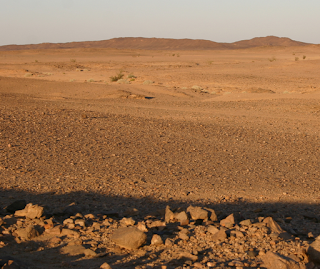A’li A’bid (A’li Ibn Hasan Al-Muthallath) was one of the children of Imam Hasan (a.s.) who had been imprisoned by Mansur Dawaaniqi and had died while still in prison. A’li A’bid was unsurpassed in his patience, worship and remembrance of God.
When Mansur arrested the descendants of the Holy Prophet (s.a.w.) and the children of Imam Hasan (a.s.), he placed them in a prison that was so dark that day could not be differentiated from night, except by means of the recitations and acts of worship of A'li A’abid. These acts were disciplined, orderly and continuous, and therefore made the others aware of the time for prayers.
One day, due to the hardships of captivity and the weight of his fetters, A'bdullah Ibn Hasan Al-Muthanna lost patience and in a state of great agitation, said to A'li A’abid:
“Do you not witness our misfortunes and adversities? Do you not pray to God to grant us relief from this suffering of ours?”
A'li A’abid remained silent for a while after which he said, “O’ Uncle! There exists for us a (lofty) rank in Paradise, which we can never achieve except by exhibiting patience over theseor even more severe adversities, and there exists for Mansur a dreadful place within Hell, which he shall never reach except by subjecting us to such persecution. If we are patient, we shall soon find ourselves in ease and comfort, for death is not very far from us. But if you desire, I shall pray for our deliverance, but in that case, Mansur shall not reach that stage of wretchedness, which has been ordained for him, within Hell.”
Hearing this, A'bdullah immediately said, “We shall be patient.”
Hardly three days had passed when, A'li A’abid passed away while in a state of prostration. A'bdullah thought him to be asleep and said, “Wake up my nephew.”
As they attempted to move him, they found that he would not wake up and it was then they realized that he had died.



